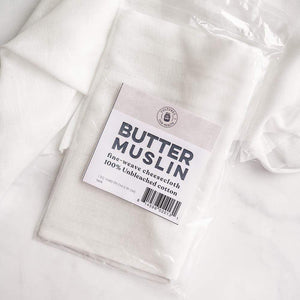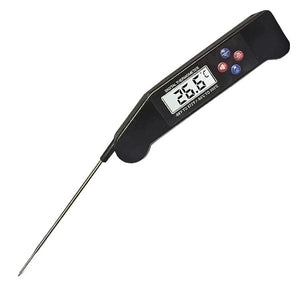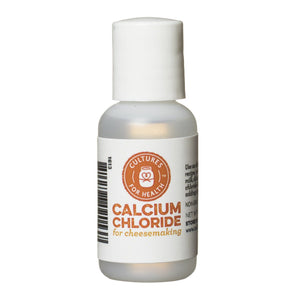
Feta cheese makes a wonderful addition to salads or sandwiches, or as a garnish for meat or vegetables. Generally made with goat milk, it can be made with cow milk if desired. Find all the ingredients for making feta at home in the Fresh Cheese Making Kit.
2 hours
2 hours
1 Lbs
INGREDIENTS AND EQUIPMENT AVAILABLE AT CULTURES FOR HEALTH
Feta Cheese Starter Culture

Feta Cheese Starter Culture
$19.99
Make deliciously tangy goat, cow, or sheep milk feta. This starter culture blend was specially formulated to make great feta; just add rennet.
Mesophilic Direct-Set Starter Culture

Mesophilic Direct-Set Starter Culture
$19.99
From cheddar, Colby, and Monterey Jack to Feta, Chevre, and more, you'll enjoy the flavor and variety of homemade cheeses made using this starter culture.
Butter Muslin

Butter Muslin
$7.99
Butter Muslin is a tightly woven cloth, similar to cheesecloth, used for draining, pressing, and straining soft cheeses, yogurt or milk kefir. Butter muslin cloth also works as a breathable jar cover for all sorts of fermenting applications.
Digital Thermometer

Digital Thermometer
$19.99
Temperature is extremely important when it comes to baking. Eliminate any guesswork with this instant-read digital thermometer so you can keep track of your dough temperature, ambient temperature!
*Requires 2 AAA batteries, not included
Vegetable Rennet Tablets
Calcium Chloride

SUPPLIES FOR FETA CHEESE RECIPE:
- A large pot (if metal, be sure it's non-reactive such as stainless steel)
- A wooden spoon
- Colander
- Curd knife or another long-bladed knife
- Thermometer (stick-on thermometer or Digital)
-
Butter muslin or tea towel
USING CALCIUM CHLORIDE FOR FETA CHEESE:
Milk that is not produced locally often is not as fresh and goes through additional processing to ensure its safe arrival at the store.
The amount of calcium in that milk is often reduced through the heat-treating process which leads to softer cheese curd.
Calcium chloride is an additive that helps store-bought milk (and goats milk) form a firmer curd when setting.
If you are using non-local milk to make feta, consider using calcium chloride to improve the chances of firm curd formation.
Download our free Cheesemaking Recipe Book today, which comes with tips and tricks in making Mozzarella, Ricotta, Cream Cheese, Feta, Chevre, and more to another level.
INGREDIENTS FOR HOMEMADE FETA CHEESE RECIPE:
- 1 gallon goat or cow milk (avoid UHT or ultra-pasteurized milk)
-
Rennet:
- 1/2 tsp. liquid rennet OR
- 1/2 rennet tablet diluted in 1/4 cup cool water
-
Mesophilic culture (choose one of the following):
- 1 packet feta cheese starter culture
- 1 packet direct-set mesophilic starter culture
- 1 Tbsp. yogurt
- 1/8 tsp. calcium chloride diluted in 1/4 cup water (optional)
INSTRUCTIONS FOR FETA CHEESE RECIPE:
- Warm the milk in a stainless steel (or other non-reactive) pot to 86°F. If using calcium chloride, incorporate the mixture of diluted calcium chloride into the milk as the milk starts to warm up.

-
Add the culture to the milk and stir thoroughly. Allow the milk to sit undisturbed for an hour at room temperature.
- Once the milk is ready, dilute the rennet in 1/4 cup cool water. Mix the rennet/water into the milk using an up-and-down motion with your spoon (not a stirring motion). Incorporate the rennet but do not over-mix.
- Place a lid on the pot and let the milk mixture sit undisturbed overnight. The next morning, check that the milk has gelled and there is a clean break in the curd.

- Use a knife to cut the curd into 1/2-inch cubes. If necessary, use very clean hands to check the bottom of the pot for curds that may have been missed.

-
Gently stir the curd off and on over the next 20 minutes. The curds should become somewhat retracted.
-
Place a tea towel, cotton bag, butter muslin, or multi-layered cheese cloth in a colander. Pour in the curds and allow the visible whey to drain off. Once the whey has drained, tie the cloth in knots and hang it over the sink or a bowl. Allow the curd to drain for another 4 hours or until no more whey drips off.
BRINING FETA:
While feta can be eaten fresh, the flavor is more pronounced if it is aged in a brine solution.
-
Make a brine solution using 1/3 cup non-iodized salt and 1/2 gallon of water.
-
Place the curds in the brine solution in a jar with a lid in the fridge.

- Brine for 4 to 5 days if using store-bought goat milk or for 30 days if using farm-fresh goat milk.
Extra Tip: If you find that your curd doesn’t sit firmly enough, some cheesemakers suggest mixing 1/8 tsp. calcium chloride diluted in 1/4 cup water into the milk as it is heating the next time you make feta.
START MAKING YOUR OWN FETA CHEESE WITH CULTURES FOR HEALTH
Now that you know exactly how to make feta cheese – it’s time to start doing it for yourself at home and Cultures for Health is here to help!
We have the largest selection of cheese starter cultures, tools, and all-in-one kits for you to choose from to make making your own cheese at home as easy as possible.
The best option for beginners or experienced feta cheesemakers is our Feta Cheese Starter Culture.
This cheese making kithas 4 packs of freeze dried feta cheese culture ready for you to make at home. This comes with cheese making supplies and detailed instructions on exactly how to use the culture in case you forget the above directions we wrote.
Click here to check out our Feta Cheese Starter Culture now!
Want to start making your homemade cheese? Download our free Cheesemaking Guide and Recipe Book today!
Ready to Learn More?















